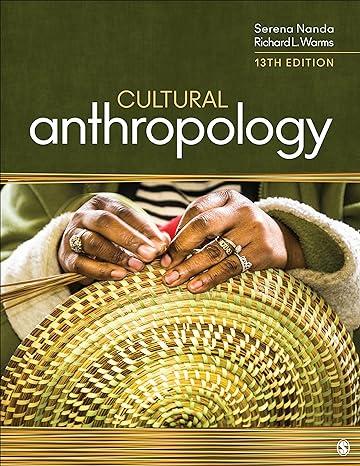Schoch-Spana points out that communication from authorities during disasters such as pandemics needs to be frequent, consistent,
Question:
Schoch-Spana points out that communication from authorities during disasters such as pandemics needs to be frequent, consistent, and honest. To what degree did authorities achieve this goal during the COVID-19 pandemic?
Plagues and pandemics have had profound effects on world history. The Justinian plague of the mid-500s CE was probably implicated in the decline of the Eastern Roman Empire. The bubonic plague of the mid-1300s hastened the collapse of feudalism in Europe and led to broad social and economic changes. In the 1500s, as we discuss in Chapter 15, tens of millions in the Americas died from diseases brought by Europeans, and the world was forever changed. Pandemics and plagues have continued to the present day. The influenza pandemic of 1918 is believed to have infected about one third of the world's population and caused at least 50 million deaths (Jordan et al., 2019). In 1957, an influenza epidemic killed about 1.1 million worldwide, including more than 110,000 in the United States. Worldwide, another million died in a similar epidemic in 1968, and as many as half a million in the H1N1 epidemic of 2009 (CDC, 2019). Cholera broke out in Haiti shortly after the 2010 earthquake, and by that fall, about 800,000 Haitians had been sickened and 10,000 died, a huge toll in a population of 11 million (CDC, n.d.).
Anthropologist Carlo Caduff (2015) analyzes the discourse around the inevitability of pandemics as a kind of prophecy. Scientists speak about the future. They speak with authority, arguing that the days of pandemic are closer than people think. However, they also worry that it's difficult to maintain public vigilance when terrible events do not occur. Then public interest wanes and funding fails. This seems to be what happened in the United States and Europe. In the late 2000s and early 2010s, a series of threats led to relatively high levels of preparedness. However, as the epidemics failed to have deep effects, interest declined, especially after the rise of populist regimes in the mid-2010s. These changes, as well as initial denial of the disease's severity, crippled the responses of many nations, particularly the United States and Western Europe, when the COVID-19 epidemic began in late 2019. As of July 1, 2022, the U.S. Centers for Disease Control and Prevention has recorded more than 87 million COVID-19 cases in the United States and more than 1 million deaths (CDC, n.d.). This is almost certainly a substantial undercount. A study published in April 2022 showed that almost \(60 \%\) of the U.S. population and \(75 \%\) of U.S. children showed seriological (blood-based) evidence of having been exposed to COVID-19 (Clarke et al., 2022). Globally, there have been more than a half a billion cases and more than 6.3 million deaths (World Health Organization, n.d.). This, too, most likely severely underrepresents the true toll of the disease.
Now, 3 years into the pandemic, we can see some of the effects of the disease on our own culture and others throughout the world. For many people, the pandemic changed the nature of work, of school, and of daily life. Some of these changes, such as the increasing prevalence of remote work and school, will be very long lasting. The pandemic is implicated in many other social changes. It has been one element increasing political, cultural, and social polarization in the United States and many other countries. It is a critical reason for both the economic boom of 2021 and the inflation and economic downturn that followed it. These, in turn, will have strong political effects.
Anthropologist Monica Schoch-Spana has studied community responses to disasters. Schoch-Spana notes that governments often assume that in times of disaster, their principal job will be maintaining public order. However, when communication from public officials is honest and accurate, scenes of chaos are rare.
With other anthropologists, Schoch-Spana held engagement forums in Maryland and Texas to explore community values in the distribution of medical resources, such as ventilators, that might be scarce in an emergency (Schoch-Spana et al., 2021). She found that people did have concerns over the fairness of procedures for allocating these resources. They were afraid of biased decisions by practitioners and worried that some people would try to game the system. Authorities need to address these concerns directly and be transparent about how such decisions are to be made. Schoch-Spana's other suggestions for leaders and authorities include speaking in human terms rather than in statistics, empathizing with people who must make extraordinarily difficult decisions, giving people concrete things that they can do to help, and setting realistic expectations. Messages to the public must be honest, consistent, and frequent. Without this, health care decisions may seem unfair.
Step by Step Answer:






